- 0086-571-85302990
- sales@greenskybio.com
Natural grape seed extract can reduce high blood pressure.
2024-11-13

1. Introduction
High blood pressure, or hypertension, is a major global health concern. It is a significant risk factor for various cardiovascular diseases, including heart attacks, strokes, and heart failure. While there are many pharmaceutical medications available for treating hypertension, there is growing interest in natural alternatives. Grape Seed Extract, a natural substance derived from grape seeds, has emerged as a potential candidate in the management of high blood pressure. This article will explore the scientific evidence behind the blood - pressure - lowering effects of Grape Seed Extract, its possible mechanisms of action, and its potential as a natural alternative in blood pressure management.
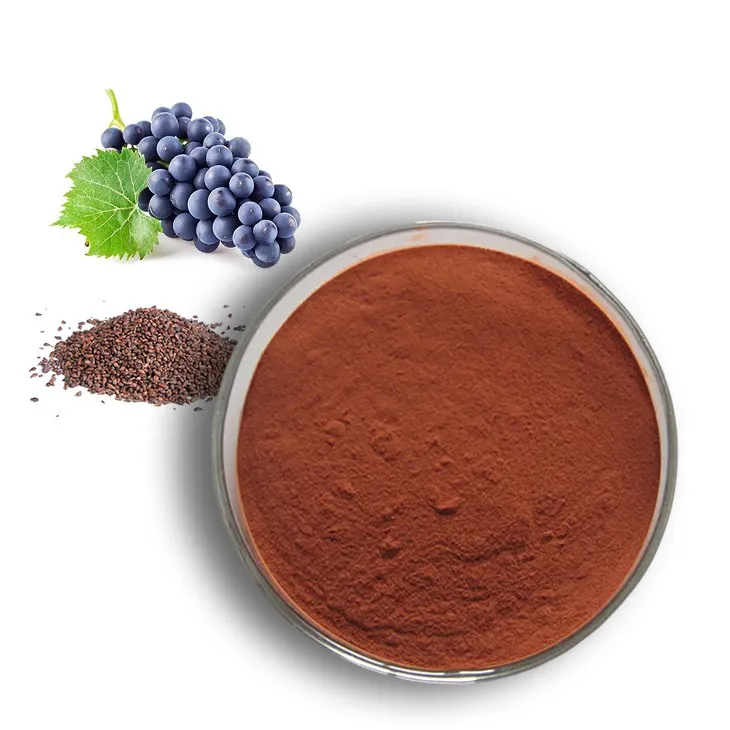
2. What is Grape Seed Extract?
Grape seed extract is a rich source of bioactive compounds. It is obtained from the seeds of grapes, which are by - products of the winemaking and grape juice production industries. The main bioactive components in grape seed extract are proanthocyanidins. These are a class of flavonoids known for their antioxidant properties. Proanthocyanidins are oligomers and polymers of flavan - 3 - ol units and are found in high concentrations in grape seeds. Grape seed extract also contains other phenolic compounds, such as phenolic acids and flavonols, which may contribute to its overall biological activity.
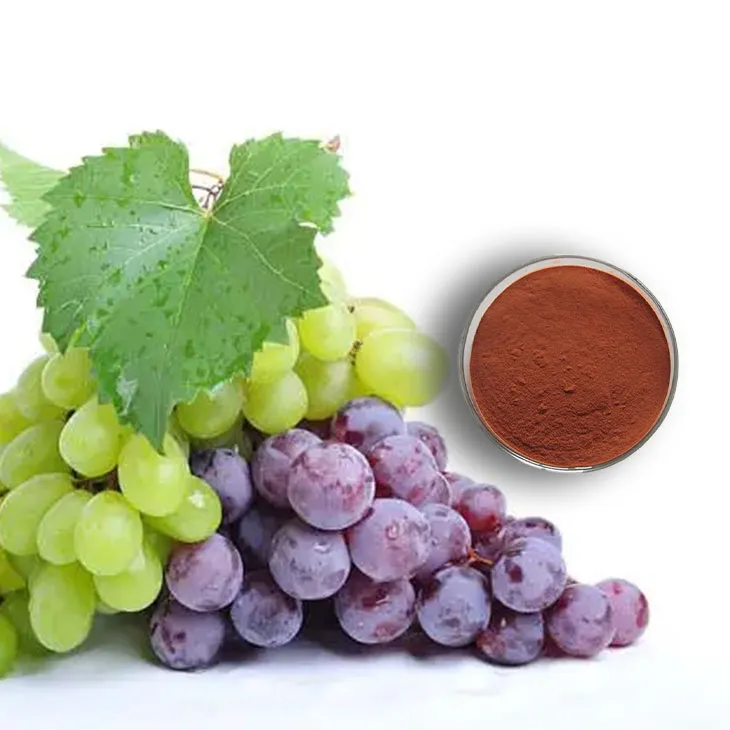
3. Scientific Evidence for the Blood - Pressure - Lowering Effects
3.1. Animal Studies
Several animal studies have investigated the effects of grape seed extract on blood pressure. In rats with experimentally induced hypertension, grape seed extract supplementation has been shown to significantly reduce blood pressure. For example, one study found that rats fed a diet supplemented with grape seed extract had lower systolic and diastolic blood pressures compared to control rats. The researchers attributed this effect to the antioxidant and vasorelaxant properties of the extract. In another animal study, grape seed extract was found to improve endothelial function in hypertensive rats, which is an important factor in blood pressure regulation.
3.2. Human Studies
There have also been a number of human studies examining the impact of grape seed extract on blood pressure. A randomized, double - blind, placebo - controlled trial involving individuals with pre - hypertension or stage 1 hypertension found that supplementation with grape seed extract for 8 weeks led to a significant reduction in systolic blood pressure. However, the effect on diastolic blood pressure was not as pronounced. Another study in hypertensive patients showed that grape seed extract supplementation improved blood pressure control when used in combination with standard antihypertensive medications. These human studies suggest that grape seed extract may have a beneficial effect on blood pressure in humans, although more research is needed to confirm these findings and to determine the optimal dosage and treatment duration.
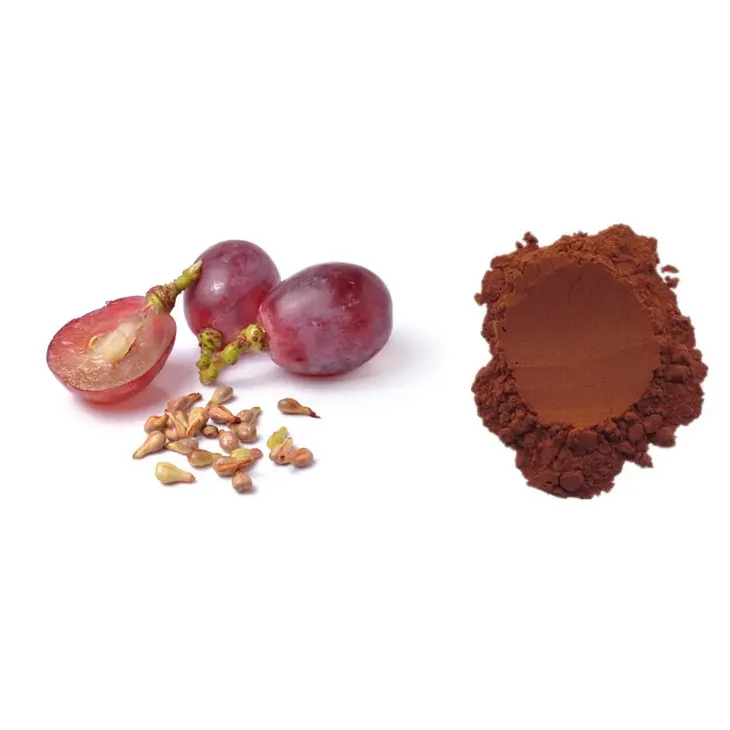
4. Possible Mechanisms of Action
4.1. Antioxidant Activity
One of the main proposed mechanisms by which grape seed extract may lower blood pressure is through its antioxidant activity. Oxidative stress plays a crucial role in the development and progression of hypertension. Reactive oxygen species (ROS) can damage blood vessels, impair endothelial function, and increase vascular resistance. Proanthocyanidins in grape seed extract are potent antioxidants that can scavenge ROS and reduce oxidative stress. By protecting blood vessels from oxidative damage, grape seed extract may help to maintain normal blood vessel function and reduce blood pressure.
4.2. Vasorelaxant Effect
Grape seed extract has also been shown to have a vasorelaxant effect, which means it can relax the smooth muscle cells in blood vessel walls. This leads to dilation of the blood vessels, reducing vascular resistance and subsequently lowering blood pressure. The vasorelaxant effect may be mediated by several mechanisms, including the modulation of calcium channels in smooth muscle cells. Proanthocyanidins in grape seed extract can inhibit calcium influx into smooth muscle cells, causing them to relax. In addition, grape seed extract may also stimulate the production of nitric oxide (NO) in endothelial cells. Nitric oxide is a powerful vasodilator that helps to keep blood vessels open and maintain normal blood flow.
4.3. Regulation of Blood Pressure - Related Hormones
Another possible mechanism by which grape seed extract may affect blood pressure is through the regulation of hormones involved in blood pressure control. For example, it may influence the renin - angiotensin - aldosterone system (RAAS). The RAAS is a complex hormonal system that plays a key role in regulating blood pressure. Activation of the RAAS leads to the production of angiotensin II, which causes vasoconstriction and an increase in aldosterone secretion, resulting in sodium and water retention and an increase in blood pressure. Some studies suggest that grape seed extract may inhibit the activity of the RAAS, thereby reducing blood pressure. However, more research is needed to fully understand the interactions between grape seed extract and blood pressure - related hormones.
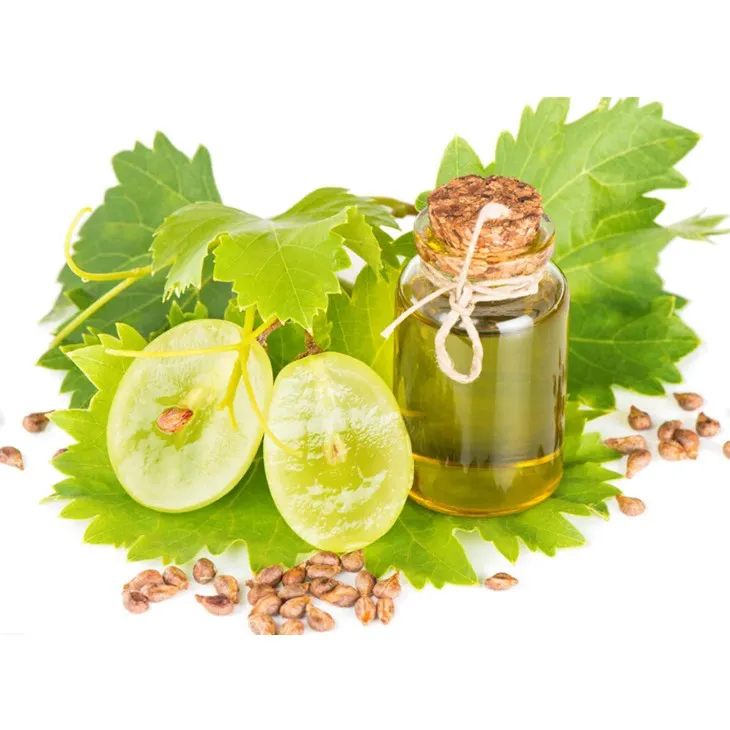
5. Grape Seed Extract as a Natural Alternative in Blood Pressure Management
The potential of grape seed extract as a natural alternative in blood pressure management is an area of great interest. For individuals with mild hypertension or those at risk of developing hypertension, grape seed extract may offer a non - pharmacological option for blood pressure control. It may also be used in combination with conventional antihypertensive medications to enhance their effectiveness or reduce the dosage required. However, it is important to note that grape seed extract should not be used as a substitute for medical treatment without consulting a healthcare provider. There are still some uncertainties regarding its long - term safety and effectiveness, and more research is needed to establish clear guidelines for its use in blood pressure management.
5.1. Safety Considerations
Generally, grape seed extract is considered safe for most people when taken at recommended doses. However, some individuals may experience side effects such as headache, dizziness, or gastrointestinal discomfort. There may also be potential interactions with certain medications, such as blood - thinning drugs. Therefore, it is crucial to inform your healthcare provider if you are considering taking grape seed extract, especially if you have any underlying medical conditions or are taking other medications.
5.2. Dosage and Formulations
The optimal dosage of grape seed extract for blood pressure management has not been clearly defined. Different studies have used a variety of dosages, ranging from 100 - 300 mg per day. Grape seed extract is available in various formulations, including capsules, tablets, and powders. When choosing a product, it is important to look for a high - quality supplement that contains a standardized amount of proanthocyanidins.
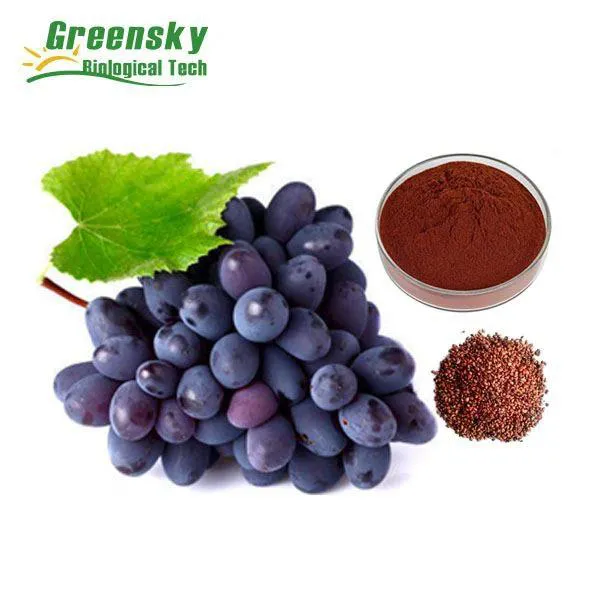
6. Conclusion
In conclusion, grape seed extract shows promise as a natural substance that may help in reducing high blood pressure. There is evidence from both animal and human studies to suggest that it can have beneficial effects on blood pressure. The possible mechanisms of action include antioxidant activity, vasorelaxant effect, and regulation of blood pressure - related hormones. While it may offer a potential natural alternative in blood pressure management, more research is needed to fully understand its long - term safety and effectiveness, as well as to determine the optimal dosage and treatment duration. As with any natural supplement, it is important to consult a healthcare provider before using grape seed extract for blood pressure management.
FAQ:
What is grape seed extract?
Grape seed extract is a natural substance obtained from grape seeds. It is rich in various beneficial compounds, especially powerful antioxidants known as proanthocyanidins. These components contribute to its potential health - promoting properties.
How does grape seed extract reduce high blood pressure?
There are several proposed mechanisms. Firstly, it can improve blood vessel function, making the blood vessels more elastic and less constricted. Secondly, it reduces oxidative stress, which is often associated with high blood pressure. Additionally, it may regulate blood - pressure - related hormones, thus helping to lower blood pressure levels.
Are there any side effects of using grape seed extract for blood pressure control?
While generally considered safe for most people, some individuals may experience mild side effects such as upset stomach, headache, or dizziness. However, these are relatively rare. It's important to note that if you are taking other medications, especially blood - pressure - lowering drugs, you should consult a doctor before starting grape seed extract supplementation as there could be potential interactions.
How much grape seed extract should be taken to potentially lower blood pressure?
The optimal dosage has not been definitively established. Different studies may use different dosages. However, typical dosages range from 100 - 300 mg per day. It's crucial to follow the advice of a healthcare provider, especially considering individual factors such as overall health, other medications being taken, and the severity of high blood pressure.
Can grape seed extract replace blood - pressure - lowering medications?
No, at present, grape seed extract should not be considered a replacement for prescribed blood - pressure - lowering medications. While it shows potential in helping to manage blood pressure, it is more of a complementary approach. People with hypertension should always follow their doctor's advice regarding medication use and any additional supplements.
Related literature
- The Effect of Grape Seed Extract on Blood Pressure: A Systematic Review and Meta - Analysis"
- "Grape Seed Proanthocyanidins and Cardiovascular Health: A Review of the Mechanisms of Action"
- "Natural Supplements for Blood Pressure Management: The Role of Grape Seed Extract"
- ▶ Hesperidin
- ▶ citrus bioflavonoids
- ▶ plant extract
- ▶ lycopene
- ▶ Diosmin
- ▶ Grape seed extract
- ▶ Sea buckthorn Juice Powder
- ▶ Beetroot powder
- ▶ Hops Extract
- ▶ Artichoke Extract
- ▶ Reishi mushroom extract
- ▶ Astaxanthin
- ▶ Green Tea Extract
- ▶ Curcumin Extract
- ▶ Horse Chestnut Extract
- ▶ Other Problems
- ▶ Boswellia Serrata Extract
- ▶ Resveratrol Extract
- ▶ Marigold Extract
- ▶ Grape Leaf Extract
- ▶ blog3
- ▶ blog4
- ▶ blog5
-
Organic Tongkat Ali extract powder factory.
2024-11-13
-
How to make powder with ashwagandha extract.
2024-11-13
-
Rosehip extract manufacturers from China.
2024-11-13
-
The best cat's claw extract in nature.
2024-11-13
-
Chinese Dandelion Leaf Extract Suppliers.
2024-11-13
-
Propolis Extract Powder
2024-11-13
-
Stevia Extract
2024-11-13
-
Hesperidin
2024-11-13
-
Kelp Extract Powder
2024-11-13
-
Honeysuckle Pollen
2024-11-13
-
Acerola Juice Powder
2024-11-13
-
Camu Camu Extract
2024-11-13
-
Tongkat Ali Extract Powder
2024-11-13
-
Lycopene
2024-11-13
-
Senna Leaf Extract
2024-11-13





















